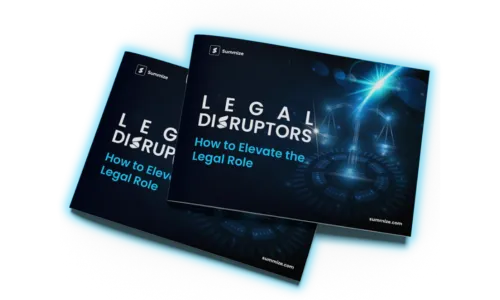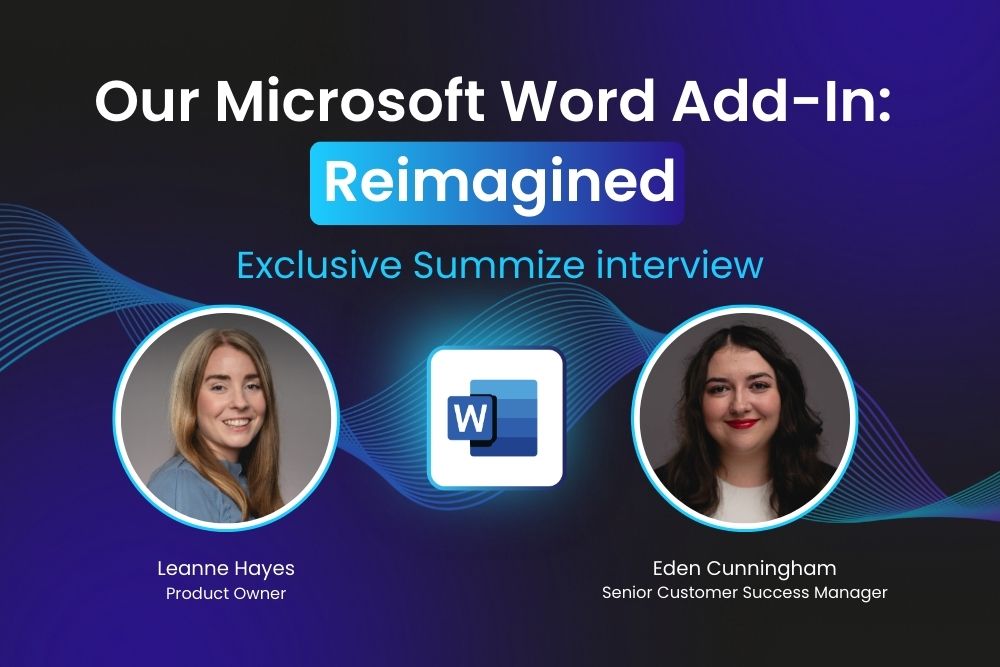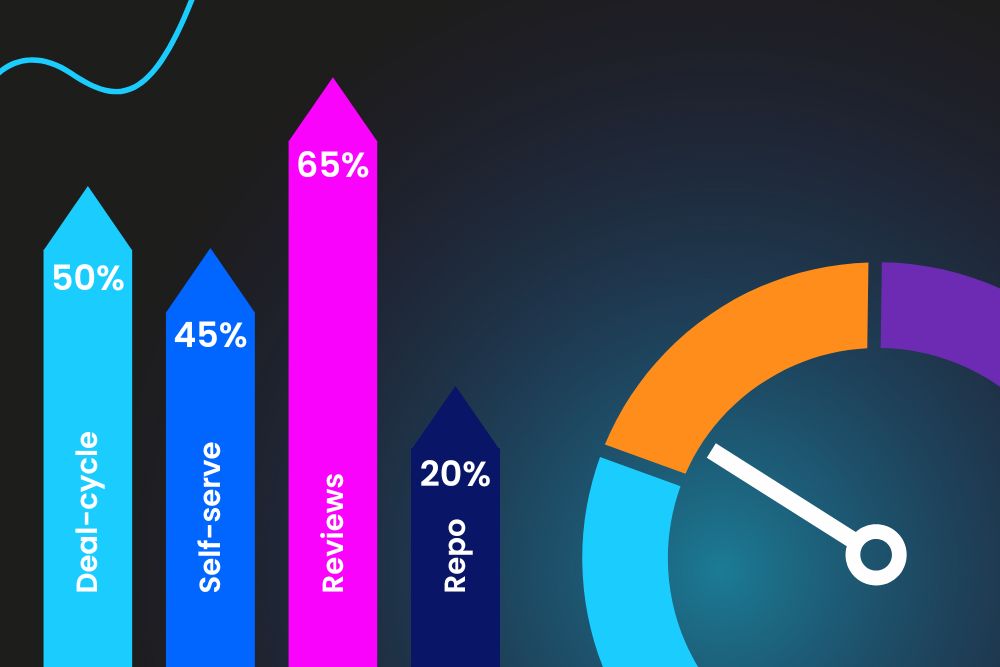Disrupting legal norms with humanity and Claire Sanders
Claire Sanders, former General Counsel and now founder of Being Human, is offering something extremely disruptive in our legal disruptors series: the permission to be human. Explore her approach to legal and humanity, and what this means for the future of the legal role.
September 29, 2025
January 6, 2026
Claire Sanders, former General Counsel and founder of Being Human, is offering something extremely disruptive in our legal disruptors series: the permission to be human.
Claire was at the height of her legal career, working as a General Counsel for big brands such as Huel, Brompton Bicycle and Nintendo, but she knew there was something missing.
Inspired by the scientific discipline of Human Factors, she started to consider whether legal professional development should take a different direction, one that encourages lawyers to embrace their human skills in order to thrive.
We sat down with Claire to understand more and to take a refreshingly needed pause. In a profession that prioritizes speed and always needing the right answer, Claire is a reminder that real, positive disruption comes from shifting the conversation and not scrambling under pressure. She shows us there’s a better way forward.
The transition from recovering lawyer
Claire’s legal career began very traditionally – studying law at university, working in private practice and then transitioning in-house as a General Counsel for big consumer brands. But even as her career progressed and reached new levels, she knew that something wasn’t quite right.
“I didn’t have the ability to communicate effectively, to deal with high amounts of stress, to see myself, my worth and value. The more I spoke to my peers, I realized there was a whole raft of lawyers who were feeling the same.”
She found that many high-performing lawyers were silently struggling. Despite academic and professional success, they hadn’t stopped to ask how they were feeling, who they were as people, and how they could thrive without personally crumbling.
The catalyst that made Claire stop and take a different approach was when her sister, a successful veterinary nurse, embarked on a master’s degree in Patient Safety and Clinical Human Factors.
As she learnt more about her sister’s studies, she began to apply the principles to her own legal career and the challenges her peers experienced on a daily basis. Claire and her sister decided to join forces to create ‘Being Human', a business consultancy that develops human factors based training and development for the legal and other professions.
“We’re passionate about making the legal profession more human. We’re helping develop sustainable performance, focusing on the human skills that create emotional regulation, positive stakeholder management, and effective critical thinking, that overall lead to better performance and healthier people.”
Digging into legal’s pain points
When asking Claire why the legal profession faces the struggles she discusses, she believes it’s intrinsically built into the role.
“It’s a complex profession, with years of stigma. We feel like we always need to have the answers and we identify as lawyers so strongly that when something isn’t going brilliantly professionally, it becomes all-encompassing.”
Many in-house legal professionals face the constant pressure to find the balance between risk and enabling the business. This challenge, combined with the too-often heard stereotype of the “fun police,” has contributed to burnout in the industry.
But Claire believes this shouldn’t be the norm, there is another way.
The human skills lawyers can’t afford to ignore
Being Human teaches lawyers that they must understand themselves first, in order to sustainably meet their professional demands,
“You can't perform at your best as a team or individually unless you are well. And wellbeing is a really natural consequence of performance.”
The ability to be well and also be a successful lawyer, isn’t an overnight change. It requires managing your workload effectively, embracing the human skills, resilience strategies, and performance optimization traits that Being Human helps lawyers develop. There’s no single starting point, as every lawyer is different, but Claire suggests first assessing how you view your resources,
“If you're flitting from one e-mail or piece of work to the next, studies done show that you can waste up to 40% of your working day by working like this.”
Start by owning your diary. Block time for focused work, but also make room to be visible and approachable. When Claire was a GC, she struck this balance by working in a closed office to focus and then spending time in the office kitchen to signal she was available for conversations.
By protecting time for deep focus and then creating open spaces, you can strike a better balance between productivity and connection.
Using technology as part of the balanced equation
However, Claire appreciates this isn’t a quick fix. Throughout her career, she often found herself spending too much time on routine tasks, such as marking up contracts or reviewing NDAs, rather than on the strategic work she enjoyed and where she added the most value. This is where technology can be used to automate the repetitive low-value tasks.
“Let tech do what tech’s good at, and let humans do what humans are good at. Together, we’re a force to be reckoned with.”
Once freed from routine tasks, legal professionals can refocus on their core human strengths: negotiating, persuading, and solving complex problems under pressure. That’s where Being Human comes in, supporting the profession with intentional reflection and small behavioral shifts that enhance how they think, communicate, and connect.
What does the lawyer of the future look like?
For Claire it’s about showing humility, building strong relationships and stepping away from the myth of the all-knowing lawyer and towards a more human version of what the profession could look like.
“To begin with, just pause. It doesn’t have to be a sabbatical, it doesn’t have to be a massive journey of self-discovery. Just input those pauses in your day and you’ll have the ability to think about how things could be done for the better.”
- Schedule time for deep work and equally for open human conversations
- Prioritize human skills such as curiosity, communication, and resilience
- Let tech handle the daily mundane churn so you can focus on the strategic value that you were brought in for
- Remember that wellbeing and performance are not separate, they should intrinsically work together
It’s easy to keep your head down, complete tasks and move onto the next without taking a step back and seeing if that’s how best you perform. Claire’s advice enables us to take a human, emotion-led step back and to know that being well is the best way forward, for your business and for you.
Learn more about Being Human’s mission and sessions on the official website, and for regular advice from Claire herself, follow her on LinkedIn. To explore even more from our Legal Disruptors, click the button below for insights, guidance and reports.
Discover even more!
Explore more about contracting and CLM in our ultimate contract guides









